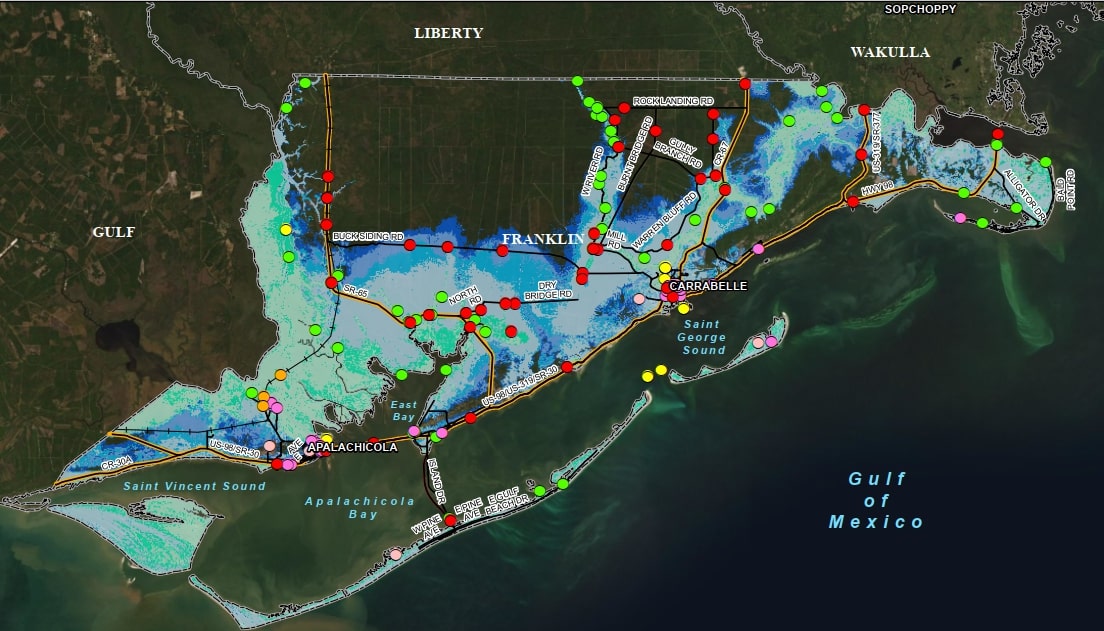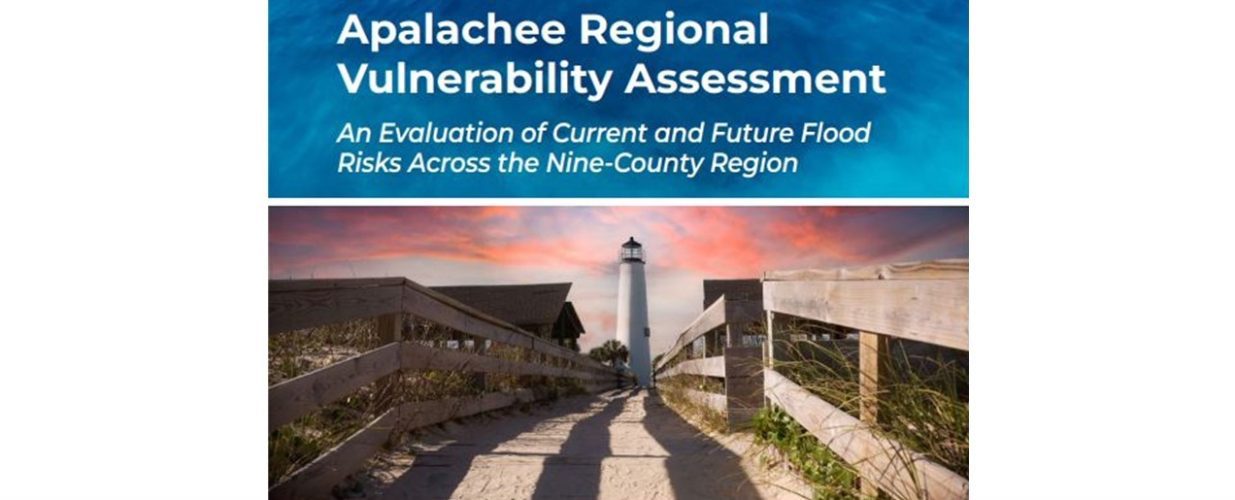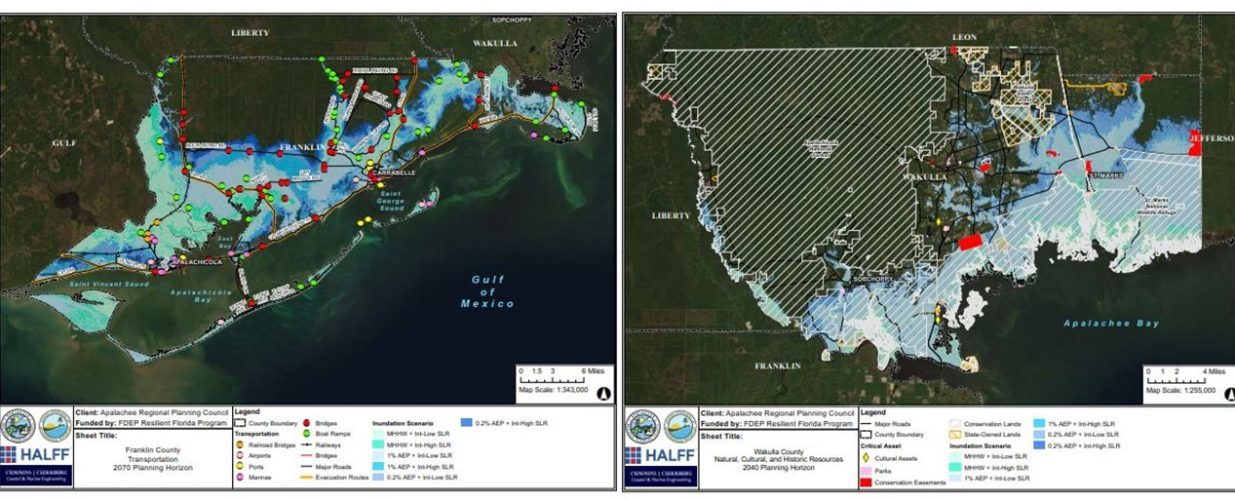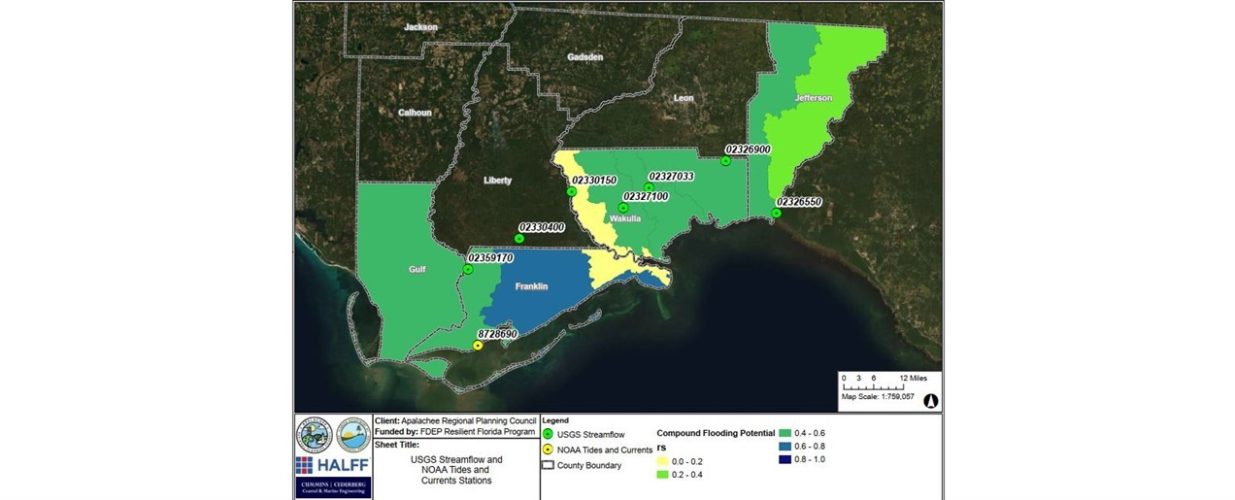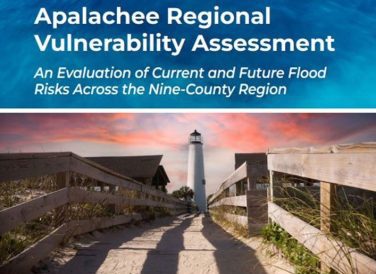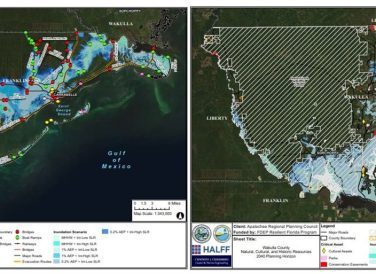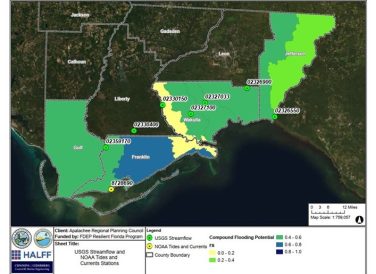Nine Counties in Florida (Total Population: 480,658) (Total Land Area: 5,855 square miles)
Apalachee Regional Planning Council (ARPC)
Halff developed a regional climate vulnerability assessment for the nine-county Apalachee Region. Halff supported the Apalachee Regional Planning Council (ARPC) with the project through a Regional Resilience Entities grant. implementation steps of a Regional Resilience Entity grant awarded by the FDEP Resilient Florida Program. The focus of the project was to comprehensively evaluate current and future climate vulnerabilities. Halff’s interdisciplinary team assessed over 17,000 critical and regionally significant assets against different scenarios of climate hazard data including flooding, storm surge, sea level rise, precipitation and compound flooding. Halff obtained the most up-to-date data and information, including recently published 2022 NOAA Sea Level Rise Projections.
The public infrastructure assets were identified and inventoried in a GIS geodatabase, and evaluated across flood scenarios. A total of 36 individual assets were evaluated at the site-specific scale. The ARPC will utilize this study to support local governments in:
- Developing planning strategies
- Writing grants to fund physical infrastructure projects
- Informing subsequent phases of the work
This regional vulnerability assessment will also provide guidance for future efforts made possible by Apalachee Strong, the ARPC’s recently formalized regional resilience collaborative.
Halff was able to complete the project under an expedited timeline, delivering a valuable 350-page report with over 90 maps to spatially visualize vulnerabilities. Local counties and municipalities across the Apalachee Region will utilize the results of the assessment to inform future coastal and inland vulnerability assessments, infrastructure priorities and fiscal decisions.
Read more | Read about the ARPC Vulnerability Assessment in action in the article: ‘Planning for Climate Mitigation and Adaptation’
Halff Services
Involved
- Land Development
- Local Infrastructure
- Resilience
- Watershed Plans & Studies
Let’s Connect
Ready to work with Halff? Simply fill out the form to be directed to the best person at Halff to discuss your interests.

